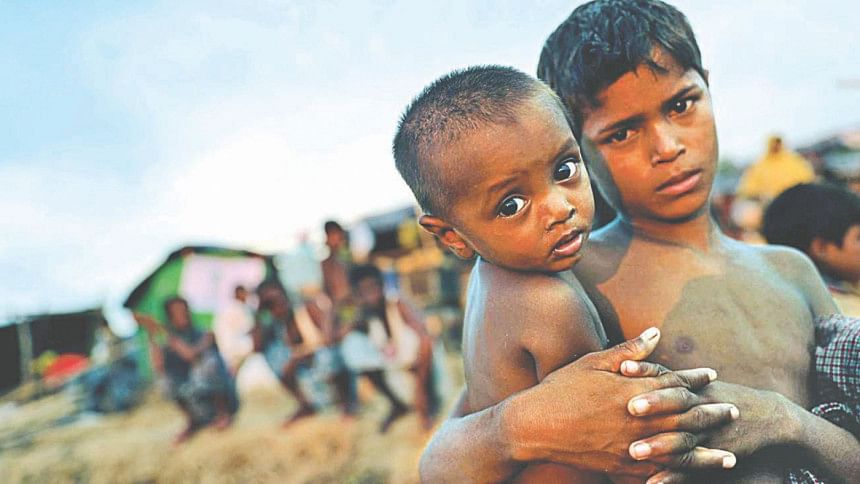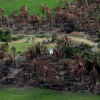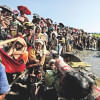UN reports more violence, persecution in Myanmar

Muslim Rohingya refugees reaching Bangladesh say violence, including torture, persists against them in Myanmar and the overall environment remains "menacing" for ethnic and religious minorities, UN human rights investigators said yesterday.
Members of the Independent International Fact-Finding Mission on Myanmar ended a five-day visit to the refugee camp of Kutupalong in Cox's Bazar where they interviewed new arrivals among the more than 700,000 Rohingya who have fled Rakhine state since an army crackdown last August.
"They referred to the overt threats they faced of violence and persecution, being cut off from their sources of livelihood, and the overall menacing environment that finally compelled them to leave for Bangladesh," the investigators said in a statement, adding that the arrival of new refugees reflects "the continuing gravity of the human rights violations in Myanmar."
There was no immediate reaction from authorities in Myanmar, where it is a holiday. Previously, they have denied widespread abuses.
The United Nations struck an outline deal with Myanmar in May aimed at eventually allowing hundreds of thousands of Rohingya in Bangladesh to return safely and by choice. But the secret agreement, seen by Reuters, offers no explicit guarantees of citizenship or freedom of movement throughout the country.
"The young men I spoke with were particularly anxious, showing signs of deep trauma. Without education and livelihood I fear for their future," said investigator Radhika Coomaraswamy.
The investigators will report their findings on Sept 18 to the UN Human Rights Council, a 47-member state Geneva forum which launched the inquiry.
ARMY'S 'SYSTEMATIC' CRACKDOWN PLAN
In another development, a rights group yesterday said Myanmar's military were engaged in "extensive and systematic" preparations for the bloody crackdown on Rohingyas, in a damning new report that it says justifies a genocide investigation.
A bloody military campaign that started last August forced some 700,000 of the effectively stateless minority over the border into Bangladesh, where they have recounted allegations of rape and extrajudicial killings.
The UN and US have called the campaign ethnic cleansing. Myanmar denies the accusations, saying it was responding to an attack by Rohingya militants.
But Fortify Rights said its report, based on months of research in Myanmar and Bangladesh and hundreds of interviews with both victims and authorities, found that security forces disarmed Rohingya civilians and trained non-Rohingya communities to fight.
The Myanmar army also cut off food aid from Rohingya and removed fencing from their homes for a clearer line of sight, according to the report.
"Myanmar authorities made extensive and systematic preparations for the commission of mass atrocity crimes against indigenous Rohingya civilians during the weeks and months before Rohingya militant attacks on August 25, 2017," Fortify said.
The report also said that deadly August attacks by the Arakan Rohingya Salvation Army, which Myanmar has cited as a reason for its counteroffensive, was a far more ad hoc operation than previously believed, and that crackdown plans were already under way.
Fortify co-founder Matthew Smith told journalists at the report's launch in Bangkok that security forces made the Rohingya Muslim population in Rakhine weaker and vulnerable to attack.
"This is how genocide unfolds. And this is how genocide has unfolded in Rakhine State," he said.
Fortify echoed calls by other organisations for the UN Security Council to refer the case to the International Criminal Court, singling out 22 military and police officials as responsible, including armed forces chief Min Aung Hlaing.

 For all latest news, follow The Daily Star's Google News channel.
For all latest news, follow The Daily Star's Google News channel. 








Comments